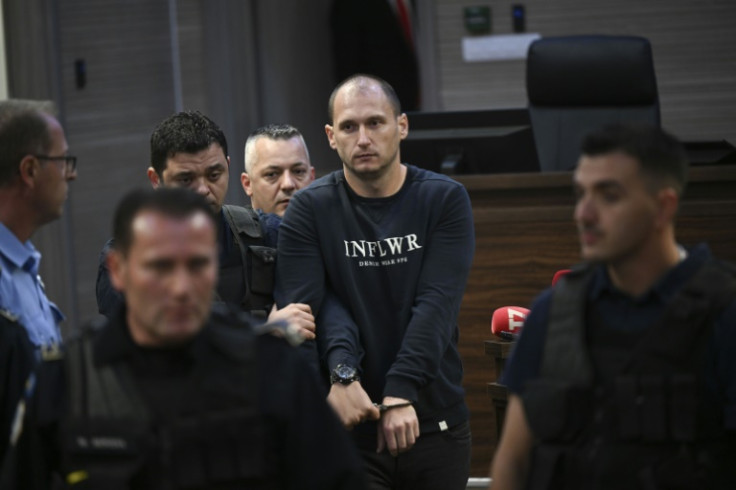
Three Kosovo Serbs went on trial on Wednesday over an armed incursion a court heard was part of a plot to seize Serb-majority northern Kosovo and unite it with Serbia.
Forty-two others are also being sought over a deadly standoff between Kosovo authorities and Serb gunmen last year, with the court in Pristina yet to decide whether to try them in absentia.
The trial comes amid mounting tension between Serbia and its former breakaway province, which declared independence in 2008.
The group is accused of ambushing Kosovo police in the border village of Banjska in a September 2023 attack that left one police officer and three attackers dead.
Prosecutor Naim Abazi told the court that the three were accused of "preparing and committing terrorist acts".
"Acting according to a well-organised plan, they tried to secede the northern part of Kosovo -- the Serbian-majority municipality -- and unite it with Serbia," Abazi said.
The three accused, who were escorted in handcuffs by heavily-armed police into the courtroom packed with reporters, were arrested during the shootout at the Banjska monastery near the border. Forty two others are still at large and believed to be in Serbia.
According to the 158-page indictment seen by AFP, Kosovo anti-terrorist units broke up the attack, forcing the group to retreat into Serbia, where it had come from.
It also alleged that Kosovo Serb businessman Milan Radoicic, who has been accused of amassing wealth through criminal and political connections, had plotted with the Serbian state to seize northern Kosovo.
The indictment also accused Serbia of giving help and weapons to the businessman's group.
It said Radoicic had admitted to judicial authorities in Belgrade that he led the commando squad that ambushed the police patrol.
The court decided Wednesday to proceed with the trial of the three and to consider trying the 42 others in absentia later.
Animosity between Albanian-majority Kosovo and Serbia has persisted since the war between Serbian forces and ethnic Albanian insurgents in the late 1990s led to a NATO intervention.
A sizeable ethnic Serbian minority lives in Kosovo, although the precise numbers are unclear as Serbs have boycotted every census since independence.
For months, Kosovo authorities have overseen legal manoeuvres to dismantle the parallel system of social services and political offices backed by Serbia to serve Kosovo's Serbs.
Kosovo has also effectively outlawed the Serbian dinar, closed banks that relied on the currency and shuttered post offices where Serbian pension payments could be cashed.








